Michelle Miller – A new age of advocacy. Public Interest Tech

Transcript
MICHELLE MILLER: Technology is not something that is just here to make money for a few people but instead is a tool to improve outcomes for the entire world. And we do that by demanding that platforms and companies are accountable to their users and by building the kinds of collectives that can make those demands with power and energy and momentum behind them.
[Michelle Miller, Co-founder, Coworker dot org. A white woman wearing a black dress.]
So, when we co-founded Coworker.org, Jess Kutch and I were coming from the traditional trade union movement and were both really inspired by what we saw as workers using popular technology tools like Facebook, like writing letters to Gawker, like creating microsites, or going onto Twitter forums to try and do what we saw as workplace organizing. We wanted to provide direct support to groups of employees who were working to negotiate with their employers and their companies around their working conditions. So we created very simple technology that just made it possible for workers to be able to run a campaign around a specific issue and to start to build their own digital community of like-minded co-workers. Unlike many labor advocacy organizations, we, the staff of the organization, don’t decide what’s important for workers. We don’t decide what the big campaign is for the year. We really create a place for workers to decide that themselves.
[A range of campaign issues populate as animated text on screen: living wages, holiday time off, transparent data, health care, gender pay equality, fair hours and scheduling, end sexual abuse at work, stop retaliation and harassment.]
An example of that is the proliferation of what we just call “the Dress Code Campaigns.” The Starbucks network was started by a barista who wanted the ability to have visible tattoos at work. At the time, there were a lot of folks who questioned why we would invest the energy in supporting something that seemed so minor in the face of low wages or scheduling issues, but it was important to her. And the truth was that it really resonated with her fellow co-workers. Fifteen thousand other baristas joined that campaign, and within two months they won. They had an experience of collective advocacy working, and it enabled them to think deeply about the other changes they would like to see inside their workplace. And what that campaign also did was it inspired a number of other workers at a number of other places to start their own campaigns. And it’s that kind of thinking that we want to support inside the organization.
[Coworker dot org campaigns appear on screen: a campaign calling for Papa John’s Pizza to address sexual harassment, another requesting Uber and Lyft to give drivers a voice, and Netflix to extend paid parental leave policy to all employees.]
The labor movement really needs to think of itself as public interest technologists. We need to stop thinking about technology as either something that is a wholesale threat or some kind of widget-like solution to all of our problems—but that instead it is a means through which we actually connect to the people we want to find and engage. If we make technology something that we have ownership and agency over, if we consider it something that all of us have a say in, that all of us can develop and shape—instead of just a few companies out in the South Bay—then we can start to imagine using it for the common good. We can use technology to ensure that resources go into the hands of the many, not just the few.
[This is tech at work for the public! Hashtag Public Interest Tech. Ford Foundation dot org forward slash tech. Ford Foundation logo: a globe made up of a series of small, varied circles.]
Accessibility Statement
- All videos produced by the Ford Foundation since 2020 include captions and downloadable transcripts. For videos where visuals require additional understanding, we offer audio-described versions.
- We are continuing to make videos produced prior to 2020 accessible.
- Videos from third-party sources (those not produced by the Ford Foundation) may not have captions, accessible transcripts, or audio descriptions.
- To improve accessibility beyond our site, we’ve created a free video accessibility WordPress plug-in.
Technology is meant to enrich the lives of everyone that uses it, not just the few. Workers can use tools of the internet to push for better working conditions and outcomes, building a future of work that works for all.
But standing up for your beliefs and rights on the job can be a big risk. Imagine having access to a tool that allows you to rally the voices of other employees that share your vision or concerns.
Michelle Miller, co-founder of coworker.org, focusses on building digital communities that put the power of numbers in the hands of the workforce. By creating tools for the community, they are making sure worker needs are prioritized and addressed according to their own standards.
“If we make technology something that we have ownership and agency over – if we consider it something that all of us have a say in, then we can start to imagine using it for the common good,” says Miller.
Michelle Miller is part of a larger community that wants to see technology serve the greater welfare of society. We call this Public Interest Tech.
Other videos in this series
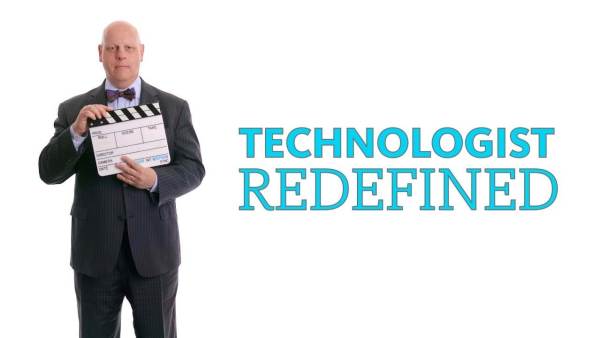
Danny Weitzner – Privacy and policy: a new school of thought. Public Interest Tech
Privacy is fundamental to our lives. Unanswered public policy questions raised by new technologies need to be addressed. Danny Weitzner, from the Massachusetts Institute of Technology (MIT), says as a society, we have to be directly engaged in these public interest technology questions to ensure new tools support human values.
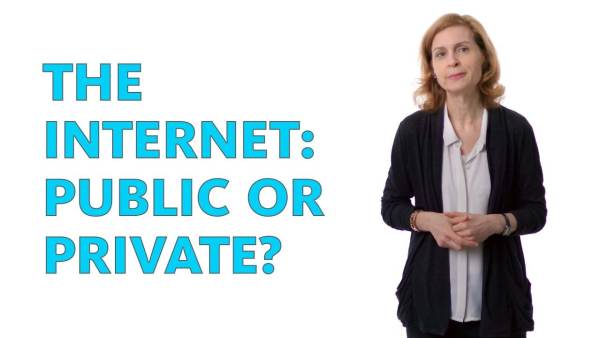
Susan Crawford – The internet: public or private? Public Interest Tech
Internet access is an indispensable factor when it comes to opportunities and resources needed for economic mobility. Public interest technologist Susan Crawford says government regulation is necessary to ensure provider incentives align with the public’s best interest and help create a better future for all.

Kade Crockford – Can computers discriminate? Spoiler alert: yes. Public Interest Tech
The age of automated decision making, through algorithms, can exacerbate inequalities in society. The ACLU’s Kate Crockford believes we need to bring technologists into the public interest fold to address this worrying issue. Lawyers like Crockford play an important part in ensuring digital technologies work for the benefit of all.

Joy Buolamwini – Fighting the “coded gaze:” How we make artificial intelligence benefit all. Public Interest Tech
The automation of how computers detect, classify, and identify faces can favor some races and genders over others and also deepen existing inequalities. Public interest technologist Joy Buolamwini is building tools to help researchers code in a more inclusive way.
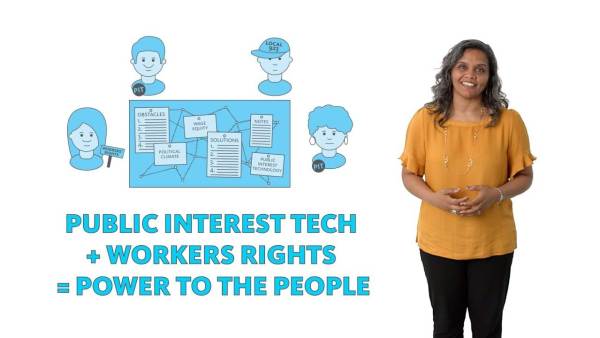
Sarita Gupta – The future of work(ers) rights! Public Interest Tech
Technology can help build a future of work that works for all. Sarita Gupta from Jobs with Justice explains how we can use technology to improve workers’ lives. Public interest technologists and social change leaders need to come together to design systems and tools that benefit all.
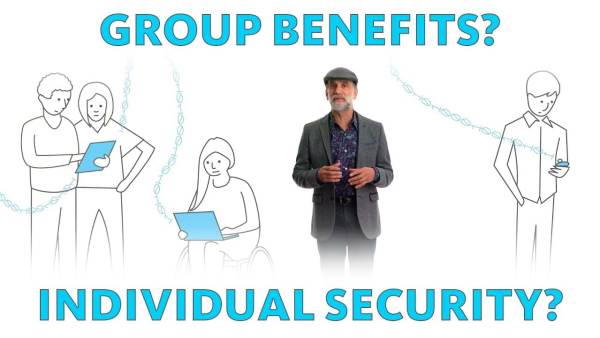
Bruce Schneier – How to survive in a hyperconnected world. Public Interest Tech
Cybersecurity expert Bruce Schneier says we need to find innovative ways to use surveillance data for the public good, while still maintaining our individual security. Tech decisions have policy ramifications, and policy decisions have tech ramifications—bridging the two worlds benefits everyone.
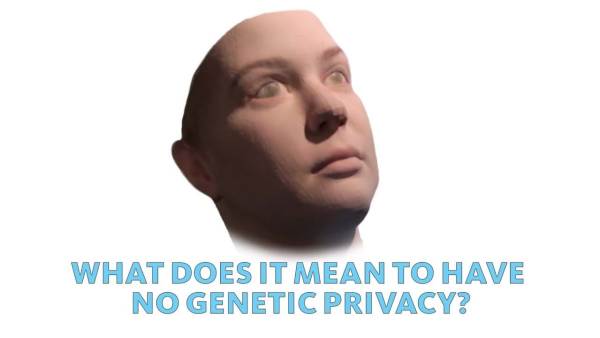
Heather Dewey-Hagborg – What can your genetic portrait tell the world? Public Interest Tech
Through her work, artist Heather Dewey-Hagborg asks deep questions about technology and how it functions and impacts society. She says we need to make the hidden world of biotechnology more visible to people, acknowledging its shortcomings and nuances to help ensure genetic privacy.
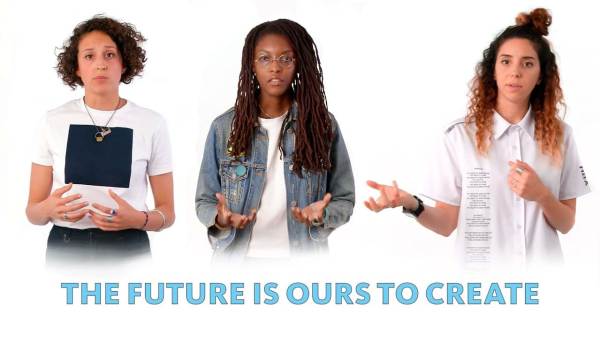
Hyphen-Labs – What does the future look like? Public Interest Tech
Technology can help us envision new ways of living. Artists can show us just what technology is capable of doing. But for tech to be truly inclusive, everyone needs to have a say in how it’s created. Artist collective Hyphen-Labs encourages experimenting with how we see the world.
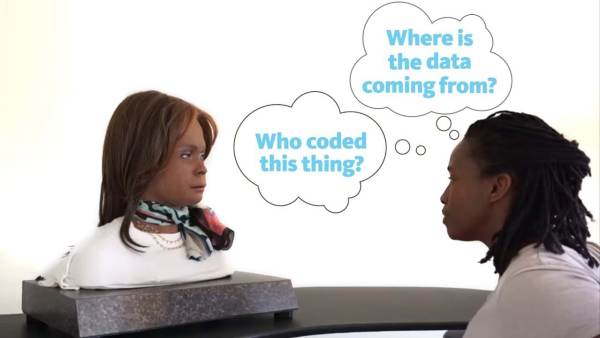
Stephanie Dinkins – Conversations with a robot. Public Interest Tech
There is implicit bias in artificial intelligence (AI). Artist Stephanie Dinkins wants data scientists and technologists to think about the ethical implications of AI and how better systems can be built for the future. Her work questions what machines are doing and why, so they can be more equitable and fair.
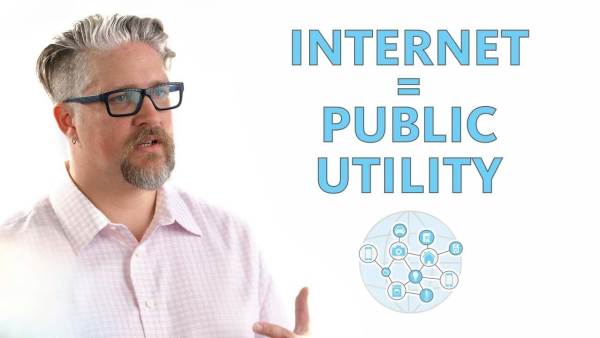
Éirann Leverett – Calling all hackers for good. Public Interest Tech
The internet is a shared safe space and should remain so. Éirann Leverett believes hacking can be used for public good. He maintains the issue of privacy and security should be seen as a consumer rights issue, and the internet should be treated as a public utility.
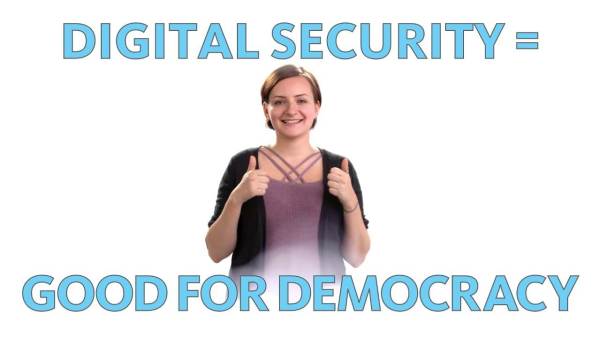
Jennifer Helsby – Digital security = good for democracy. Public Interest Tech
Having a free and open internet allows every person to read and speak freely online. Open Web Fellow Jennifer Helsby works to uphold freedom of the press and digital security, which are essential for journalists to maintain democracy.
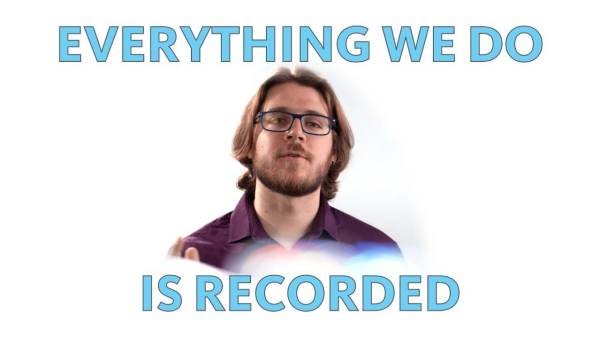
Etienne Maynier – Are these 5 tools in your organization’s digital security toolbox? Public Interest Tech
Fighting for a society that’s more equal means upholding the individual right to privacy. Etienne Maynier explains that digital surveillance is a pressing threat that feeds inequality. Protecting ourselves and our information is an important part of using technology to create a better society for all.
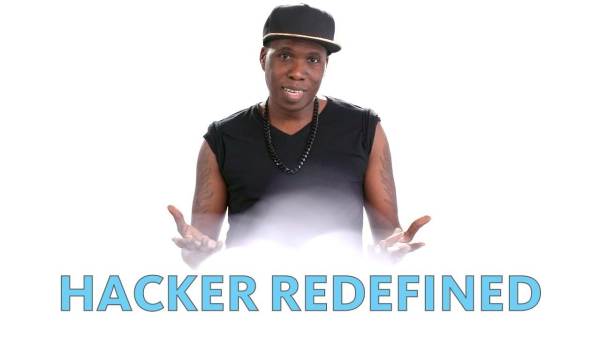
Matt Mitchell – I’m a hacker. For good. Public Interest Tech
Organizations need to be proactive in protecting themselves from digital threats. Hacker Matt Mitchell says it’s not a matter of if you will be hacked as an organization, it’s a matter of when. Having an understanding of these digital threats and planning before problems occur is vital.
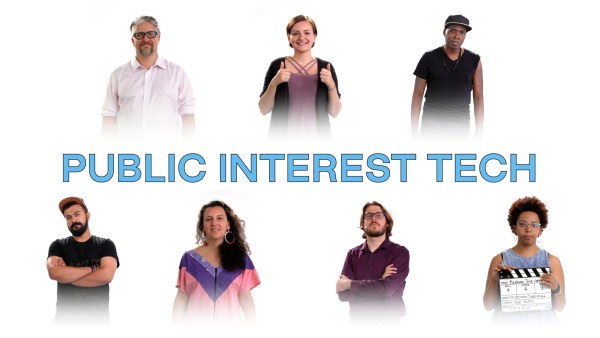
Meet the future of tech. For good. Public Interest Tech
Public interest technologists show us how tech can work for social good and help fight inequality. They work to bridge the gap between what technologies are trying to build and what social scientists are trying to solve.
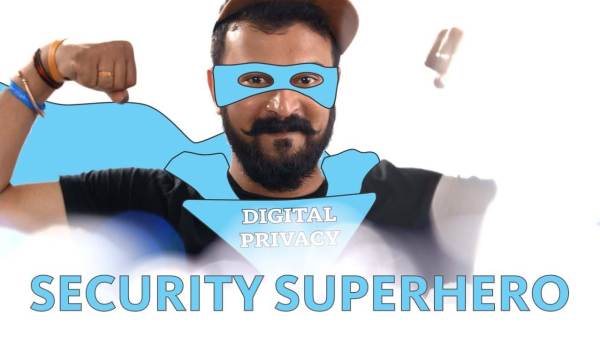
Sid Rao – My digital superpower. Public Interest Tech
Internet users don’t know how their metadata is being used or exploited for monetary or tracking purposes. Open Web Fellow Sid Rao aims to give people the tools to protect their digital privacy by knowing how their internet activities are being monitored.
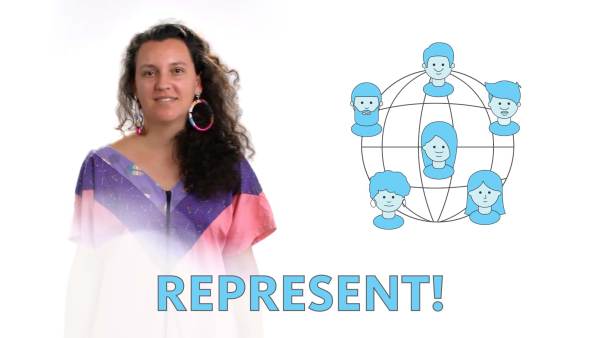
Steffania Paola Costa di Albanez – Who gets to make technology? Public Interest Tech
In the fight for equality, the way technology is developed should be a key issue. Open Web Fellow Steffania Paola Costa di Albanez says developers should reflect the diversity of those who use technology and represent a wide variety of user experiences, from women to Black women.
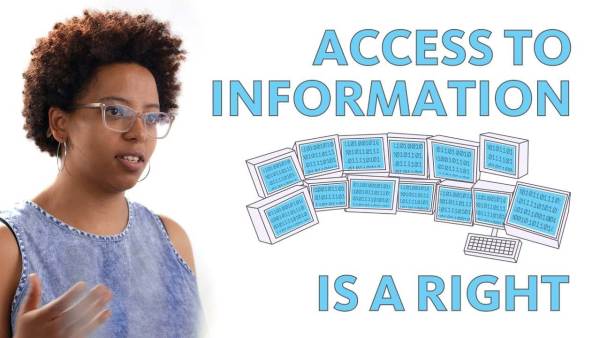
Berhan Taye Gemeda – Uncensored. Public Interest Tech
Censorship and online surveillance decrease opportunities for civic engagement. Social justice activist Berhan Taye Gemeda says access to the internet is a right, and she believes the internet should be governed by the public because it was created for the public. Accessible internet is essential for social change.

What is Public Interest Tech?
As it rapidly grows and changes our lives, technology can deepen existing inequalities in our world. For it to make a positive difference, public interest technologists work to ensure new and existing tech helps dismantle inequality and benefit the social good.